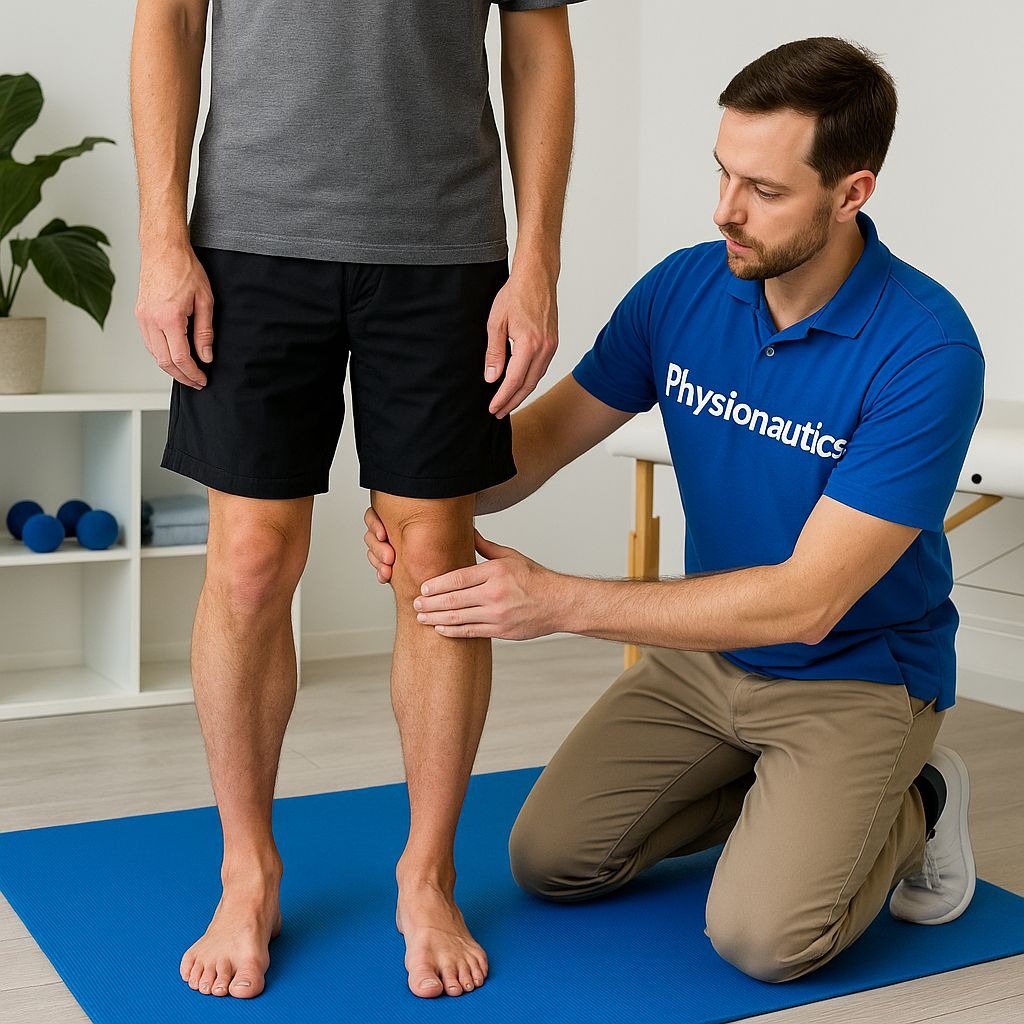



When should you see a physiotherapist In today’s fast-paced lifestyle, we often ignore our body’s warning signs until the pain becomes unbearable. But what if there’s a smarter way to manage your health—prevent the problem instead of reacting to it? That’s where physiotherapy comes in. Physiotherapy is not just for post-injury recovery—it’s a proactive approach to overall wellness, performance, and longevity. At Physionautics, we believe in empowering people to move better, feel better, and live pain-free. So, when should you see a physiotherapist? Let’s break it down. 1. You Have Persistent Pain If you’ve been dealing with neck, back, shoulder, or knee pain for more than a few days and it keeps returning or worsening this is your cue. Pain is your body’s alarm system. Physiotherapists at Physionautics specialize in diagnosing the root cause of pain and treating it without the long-term use of medication or unnecessary surgeries. Common Conditions: Cervical spondylosis, frozen shoulder, tennis elbow, sciatica, OA knee, etc. 2. You’re Recovering from an Injury or Surgery Whether it’s a sports injury, fracture, ligament repair, or post-surgical rehab, early physiotherapy ensures proper healing, reduces complications, and restores movement. At Physionautics, our structured rehab programs are tailored for each individual, using advanced therapy tools and movement science. 3. You Notice Stiffness, Weakness, or Imbalance If you’re finding it harder to get out of bed, climb stairs, or lift objects your muscles or joints may not be working optimally. Ignoring these early signs may lead to long-term dysfunction. Our experts assess muscle imbalances, postural issues, and nerve dysfunctions to restore your natural movement patterns. 4. You Have a Sedentary or Desk Job Spending long hours sitting can lead to postural syndromes, neck stiffness, headaches, and early degeneration. It may not feel serious now—but over time, it takes a toll. Physionautics offers workplace ergonomics guidance and preventive physiotherapy to counteract the effects of sedentary lifestyles. 5. Your Child Shows Delayed Milestones or Physical Limitations Paediatric physiotherapy helps children with conditions like delayed walking, cerebral palsy, or flat feet, ensuring they grow and move with confidence. Physionautics’ pediatric physiotherapists use fun, engaging, and effective techniques suited for young minds and bodies. 6. You’re Experiencing Age-Related Issues With age comes wear and tear—arthritis, balance issues, and reduced mobility. But that doesn’t mean you have to live in pain or fear of falling. Physiotherapy helps seniors maintain independence, strength, and dignity. Our geriatric rehab programs at Physionautics focus on improving balance, joint mobility, and reducing fall risk. 7. You Want to Prevent Injuries or Improve Performance Athletes, dancers, and fitness enthusiasts often seek physiotherapy for injury prevention, posture correction, and performance enhancement. Physionautics integrates biomechanical assessments, kinesio taping, and sport-specific training to help you stay at the top of your game. Don’t Wait for a Breakdown—Book a Movement Check-Up Just like you go for annual medical checkups, your body’s movement system also needs assessment. Regular physiotherapy visits can: • Identify hidden imbalances • Prevent chronic conditions • Improve posture and mobility • Boost your energy and productivity At Physionautics, we combine evidence-based practice with compassion and innovation. Our clinics are equipped with modern tools, a team of experienced physiotherapists, and a patient-first approach. From pain relief to performance upgrade, Physionautics is your partner in movement health. If you’re wondering whether it’s “serious enough” to see a physiotherapist—it probably is. Early intervention is the best intervention. Don’t wait for pain to disrupt your lifestyle. Listen to your body and let Physionautics help you move better, live better.
We hate spam too.